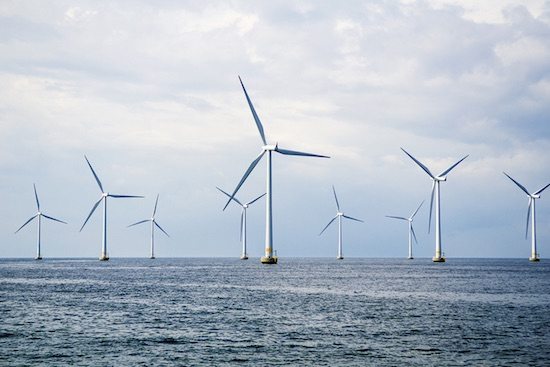Plans for what would be Australia’s first offshore wind farm, the massive 2000MW Star of the South off the coast of Victoria, have taken a small step forward this week, after the project finally got the green light from federal government for site exploration. The federal Coalition said after months of delay, that it had approved a deed of license to allow the $8 billion project’s developers, Offshore Energy, to undertake resource exploration for the wind farm off Gippsland coast. The license would allow Offshore Energy to undertake exploration only –in Commonwealth waters between 8-13 kms offshore from Port Albert.
“Through this license, Offshore Energy will be allowed to undertake activities to assess wind resources and sea bed conditions understand whether an offshore farm is technically feasible,” a statement said. The plans for the ambitious project, first formally unveiled in June 2017 but in the works for another 5 years before that, propose the construction of 250 turbines – enough to generate 1.5 times the energy of the now-closed Hazelwood coal-fired power station.
In December 2017, Melbourne-based Offshore Energy announced they had entered into partnership with Danish Copenhagen Infrastructure Partners (CIP) to further the project’s development. But since then, plans have stalled, prompting accusations from the Maritime Union of Australia (MUA) that the Star of the South –which promised to create thousands of jobs– had fallen victim to ideological opposition within the Morrison government ranks. It’s hardly an outrageous claim, considering Energy Minister Angus Taylor’s well-aired antipathy to wind farms.
It was revealed in a Senate Estimates hearing that a federal government evaluation of the project had been completed, a plan for an exploration license developed, and a briefing and recommendations provided to Energy Minister Taylor. The MUA Deputy National Secretary Will Tracey said “the exploration license did not allow construction to start and was simply about allowing the use of floating buoys and platforms off the Gippsland coast to gather wind and wave observations,’ Gippsland Times reported. “We have a major wind project that would create thousands of jobs and provide clean, reliable energy for more than a million Australian households, but because of their ideological hatred of renewable energy, the Morrison government appears to be actively stalling its development,” Will Tracy said.
By finally granting the license on the afternoon of the last Friday in March, just before it enters into a caretaker period before the upcoming election, the Coalition looks to be making a last-ditch move to boost its renewables credibility, while also reassuring the right-wing rump of the party that it hasn’t completely swallowed the renewable cool-aid. Statements from the energy minister reiterate his previous mantra that the project had required “careful consideration” being an Australian-first.
The government also stressed it has only granted an exploration license for the offshore wind farm, and is not providing financial support for development. Still, green groups and renewable energy advocates have welcomed the news, in the hope that this “first tick” from the federal government will pave the way to state approval process and testing of the wind resource.
“The Star of the South offshore wind farm will be a game changer for action on climate change and Australia’s energy system,” said Pat Simons, Friends of the Earth’s renewable energy spokesperson. “This is what transition looks like,” he added, noting that the breakthrough follows Thursday’s news of the Delburn Wind Farm proposal at a plantation site in the Latrobe Valley – the former Victorian coal hub, which is also where the Star of the South would connect to the grid via an underground cable.
Offshore Energy was founded 7 years ago, under the leadership of CEO Andy Evans, and Terry Kallis, former chief of geothermal Petratherm. Star of the South marks CIP’s first venture into the Southern Hemisphere. CIP has more than €5 billion under management and invests in renewable energy projects, including 2 other offshore wind farms.
